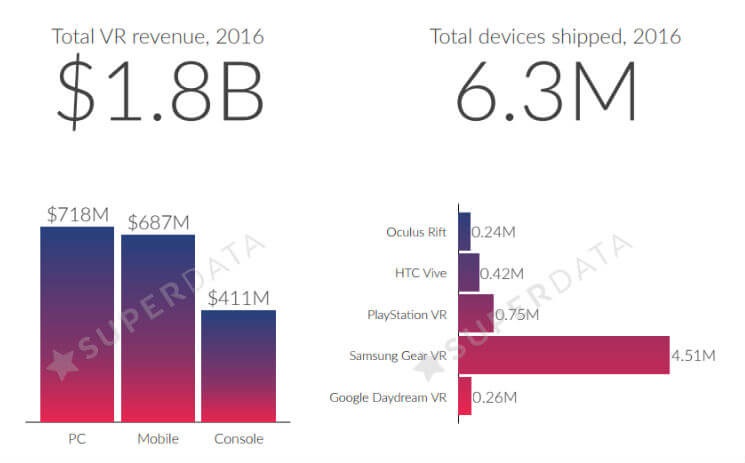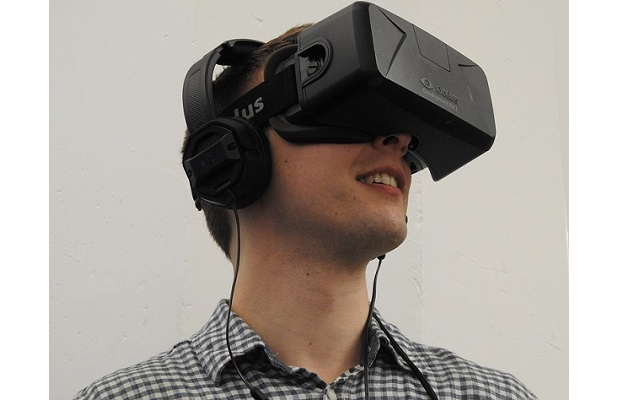The VR industry shipped 6.3 million devices worldwide and generated $1.8bn in revenue during 2016, according to new research.
The figures, from a report by Super Data, come below its previous expectations of $5.1bn in revenue for the year.
The report indicates that while VR has promise for business, most customers now are gamers, with VR game users reportedly engaging in 40 sessions a month on average.
The top selling devices were:
The report, titled “Can’t Stop Won’t Stop: 2016 Mobile and VR Games Year in Review,” is a compilation of information Super Data and Unity Technologies, though we clarified with Unity that they did not contribute to the estimates for VR headset data in the report.

Chart source: Super Data
The report estimates 4.5 million Gear VRs were sold through last year.
Clocking in at number two on the list is the PlayStation VR with sales “approaching a million” by the end of 2016.
This leaves Oculus, Google and HTC to split about a million units. According to this report, HTC’s Vive edged out Facebook’s Rift selling “more than 400K at its $800 price point.”
The report also notes “Oculus has shown a strong interest in gaming and social applications so consumer penetration will be more important to the Rift. Meanwhile, HTC Vive is becoming the device of choice for enterprise developers. …”
Findings on this growing consumer base include:
• Eighty-three percent (83%) of PC VR users have the space for room-scale VR
• Male millennials are most likely to use console headsets over any other device (52%) since 3 in 4 are gamers.
• Forty-eight percent (48%) of females over 35 try headsets at home, often using a family member’s device.
• Retail demos are the most popular way American consumers become interested in VR before buying.
Source: Super Data

